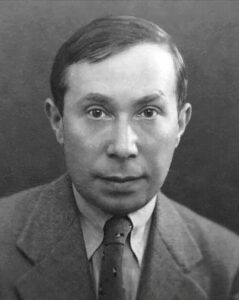Sobre Apología y Critón Strūthiō 017
Parte de:
«Sobre la Apología de Sócrates y el Critón de Platón» / I

Leōnardus Strūthiō (1899-1973)
ĒRVDĪTIŌRIBVS ***
Versiō hispānica Aemiliā Aquadītī auctrīce 17
Después de haber hecho esta trascendental declaración, Sócrates vuelve a la cuestión de la pena que él propondría. Se refiere nuevamente a la alternativa central a la pena de muerte, una multa, que con anterioridad había desechado en vista de que no poseía dinero. Ahora repite que no está acostumbrado a considerarse merecedor de ningún mal, pero agrega que no juzga como un mal la pérdida de dinero. Propone, en consecuencia, la pequeña multa que puede permitirse pagar y de inmediato aumenta el monto a treinta veces su valor, a pedido de Platón, Critón, Critóbulo y Apolodoro, que garantizan el pago. Hay y siempre hubo, por tanto, una alternativa a la pena de muerte: ¿por qué, entonces, Sócrates hizo de todos modos su escandalosa propuesta, que sólo lograría aumentar la hostilidad del jurado? El Sócrates platónico, a diferencia del Sócrates de Jenofonte, no explica su conducta en el juicio con el argumento de que, a su avanzada edad, para él es bueno morir.
Esta no es la única pregunta que queda sin respuesta en la Apología de Sócrates. En el Gorgias, la situación en que Sócrates podría encontrarse si la ciudad lo juzgara por la acusación de que corrompe a los jóvenes, efectuada por algún malvado, es comparada por él con la de un médico juzgado por niños debido a la acusación de un pastelero de que les administra medicinas amargas; no podría decirles la verdad que ellos serían incapaces de entender. Aquí, Socratés habla de la multitud como si fuera homogénea. Empero, en la Apología hace una distinción, justificada por la votación, entre la parte que lo condena y la que lo absuelve: ¿lo han entendido quienes lo absuelven? Después de ser condenado a muerte, Sócrates se dirige por separado a quienes lo condenaron y a quienes lo absolvieron. A los primeros les dice tres cosas: 1) Lo que los indujo a condenarlo no fue el hecho de que careciera de discursos —un recordatorio del proemio—, sino su negativa a rogarles piedad mirerablemente, una negativa originada en su preocupación por el honor y lo que es digno de él. Sócrates compara la conducta apropiada ante un tribunal de justicia (no la conducta apropiada en el cumplimiento de su misión; 28d10–29a1) con la conducta apropiada en la guerra: por profunda que sea la diferencia o el antagonismo entre él y los ciudadanos no filosóficos, en situaciones graves se identifica por completo, en lo que a su cuerpo concierne, con la ciudad, con «su pueblo». 2) Sin embargo, hace una distinción entre quienes lo condenan y los acusadores: la deshonra derivada de su condena recae sobre los segundos. 3) Predice que lo que esperan al darle muerte no sucederá. Al matarlo, esperan librarse de la necesidad de explicar cómo viven. Pero habrá otros que los pongan a prueba después de su muerte, a saber, aquellos a quienes él refrenaba para que no lo hicieran: estos, por ser jóvenes, serán más duros con ellos; quienes lo condenaron desconocían la influencia moderadora de Sócrates, que no la mencionó con anterioridad. Al contrario, antes había dicho (30e1-31a2) que, de matarlo, quizá no encontrarían otro tábano: ¿deseaba entonces inducirlos a que lo mataran?
Perge ad initium paginae huius
Leōnardī Strūthiōnis verba 17
After having made his momentous statement Socrates returns to the question of which penalty he should propose. He returns to the central alternative to the death penalty, a fine, which he had previously dismissed with a view to his not possessing money. In the repetition he repeats that he is not accustomed to regarding himself as deserving any evil but adds that he does not regard loss of money as an evil. He proposes therefore the small fine which he can afford to pay and raises at once the amount to thirty times its value at the request of Plato, Kriton, Kritoboulos and Apollodoros who vouch for the payment. There is then and there always was an alternative to the death penalty: why then did Socrates make at all his shocking proposal which could only aggravate the hostility of the jury? The Platonic Socrates, as distinguished from the Xenophontic Socrates, does not explain his conduct at the trial by his view that in his advanced years it was good for him to die.
This is not the only question left unanswered by Plato’s Apology of Socrates. In the Gorgias Socrates compares the situation in which he would find himself if he were tried by the city on the charge brought by some villain that he corrupts the young, to that of a physician tried by children on the charge brought by a pastry cook that the physician gives them bitter medicine; he could not tell them the truth which they would be unable to understand. Here Socrates speaks of the multitude as homogeneous. But in the Apology of Socrates he makes a distinction, justified by the vote, between the condemning and the acquitting part: will the acquitters have understood him? After he was condemned to death, Socrates addressed the condemners and the acquitters separately. To the condemners he said three things. 1. What induced them to condemn him was not that he lacked speeches—a reminder of the prooemium—but his refusal to beg meanly for their pity, a refusal stemming from his concern with honour, with what is becoming for him. He compares the proper conduct before a court of law (not the proper conduct in the performance of his mission—28d10–29a1—) with the proper conduct in war: however profound the difference, or the antagonism, between Socrates and the non-philosophic citizens may be, in grave situations he identifies himself completely, as far as his body is concerned, with the city, with “his people.” 2. Yet he makes a distinction between the condemners and the accusers: the disgrace consequent upon his condemnation falls on the accusers. 3. He predicts that what they expect from killing him will not come to pass. They expect by killing him to get rid of the necessity to give an account of how they live. But more will put them to that test after his death, namely those whom he restrained from doing so, and they, being younger, will be harsher on them than he; of this restraining influence of Socrates his condemners were unaware. Socrates had not mentioned it before. On the contrary, he had said before (30e1-31a2) that if they kill him, they are not likely to find another gadfly: did he at that time wish to induce them to kill him?
Perge ad initium paginae huius
Iūra
El texto en lengua inglesa fue publicado de manera póstuma en un volumen en honor al prof. Jacob Klein: Essais in Honor of Jacob Klein (Annapolī, ē Typographeō Acadēmīae Sānctī Iōhannis MCMLXXVI). Aunque nosotros tomamos como base lo aparecido en una antología dedicada a escritos del prof. Strūthiō en inglés en 1983: Studies in Platonic Political Philosophy (Sicagī, ē Typographeō Ūniversitātis Sicagī MCMLXXXIII). La versión castellana es obra de Aemilia Aquadīs, aparecida en la traducción del volumen mencionado anteriormente (Bonāeropolī, ē Typographeō Amōrrortī MMVIII). La publicación de estos fragmentos promueve la difusión en castellano de la obra del profesor Leōnardus Strūthiō con fines académicos y de formación. Conminamos a visitar su biblioteca más cercana o adquirir el volumen físico en su librería de confianza.

Perge ad initium paginae huius
ĒRVDĪTIŌRIBVS ***
